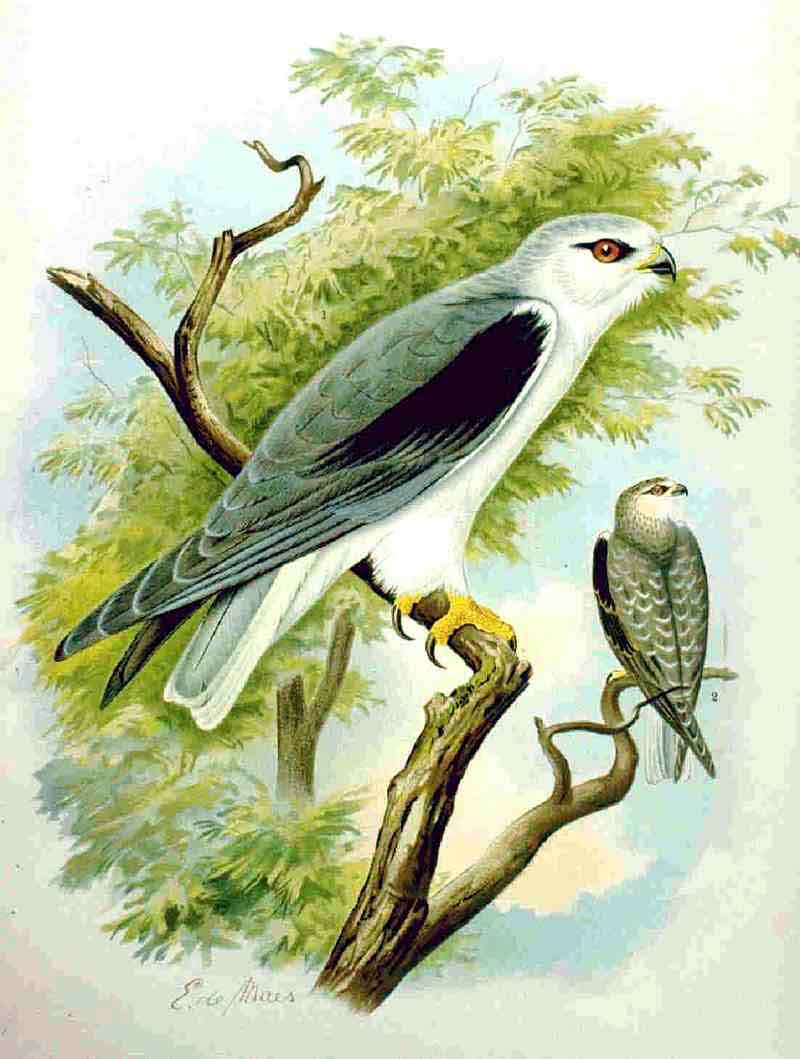|
| 질의: natural history birds | 결과: 103번째/525 | |
Black-winged Kite (Elanus caeruleus) - Wiki
| 제목: | Black-winged Kite (Elanus caeruleus) - Wiki
| |

| 해상도: 800x1059
파일크기: 60510 Bytes
등록시간: 2007:10:22 10:34:22
|
Black-winged Kite
From Wikipedia, the free encyclopedia
[Photo] Black-winged Kite (Elanus caeruleus). This image comes from the book Naumann, Naturgeschichte der V??gel Mitteleuropas (Natural history of the birds of central Europe) of 1905 or his earlier works. The copyrights for those books have expired and this image is in the public domain.
The Black-winged Kite (Elanus caeruleus) is a small bird of prey in the family Accipitridae which also includes many other diurnal raptors such as eagles, buzzards and harriers.
It is a species primarily of open land and semi-deserts in sub-Saharan Africa and tropical Asia, but it has a foothold in Europe in Spain. It nests in trees.
It takes live prey such as small mammals, birds and insects. The slow hunting flight is like a harrier, but it will hover like a Kestrel.
This bird is unmistakable. It has a white head with a black "mask", and white underparts except for black tips to its narrow falcon-like wings. Upperparts are blue-grey except for black shoulder patches.
The tail is short and square, quite unlike the more familiar Milvus kites.
This species was formerly referred to as the Black-shouldered Kite, but this name is now only used for the Australian species, Elanus axillaris, which at one time (along with the American White-tailed Kite E. leucurus) was treated as a subspecies of E. caeruleus.
http://en.wikipedia.org/wiki/Black-winged_Kite
| The text in this page is based on the copyrighted Wikipedia article shown in above URL. It is used under the GNU Free Documentation License. You may redistribute it, verbatim or modified, providing that you comply with the terms of the GFDL. |
|

|

|

|
natural history birds
103/525 |

|

|
^o^
동물그림창고 똑똑전화 누리집
^o^
|
|